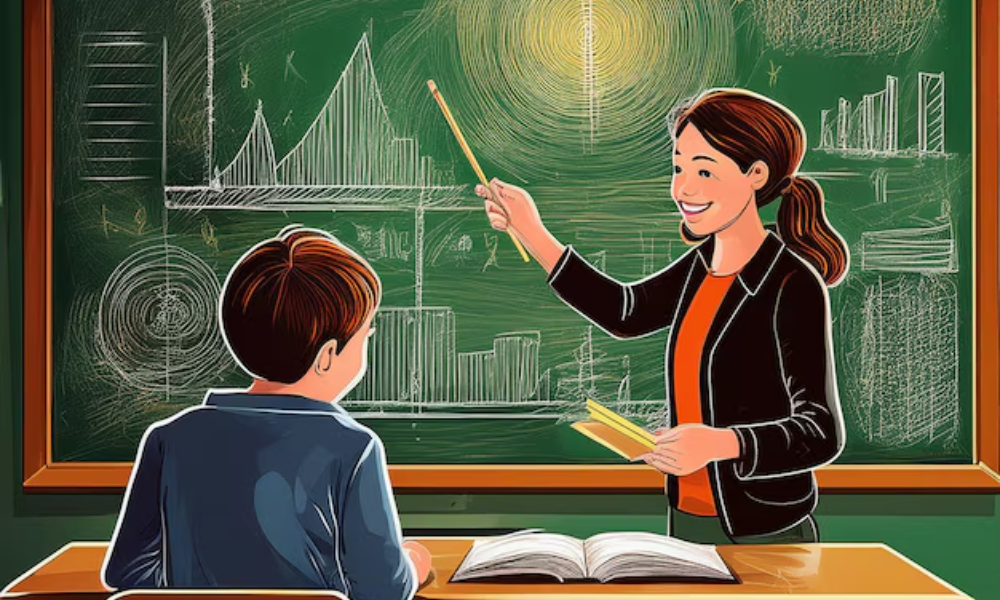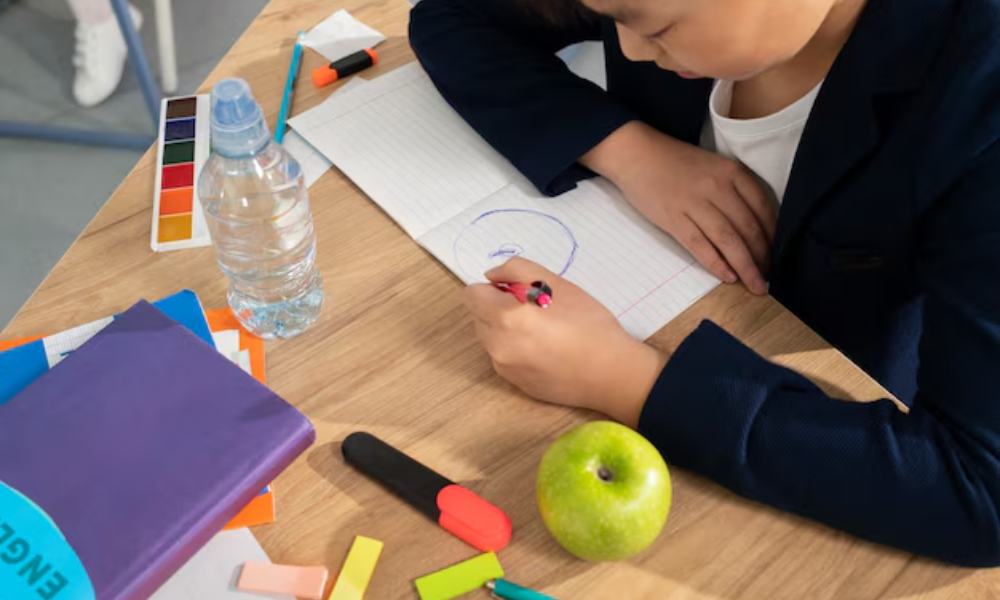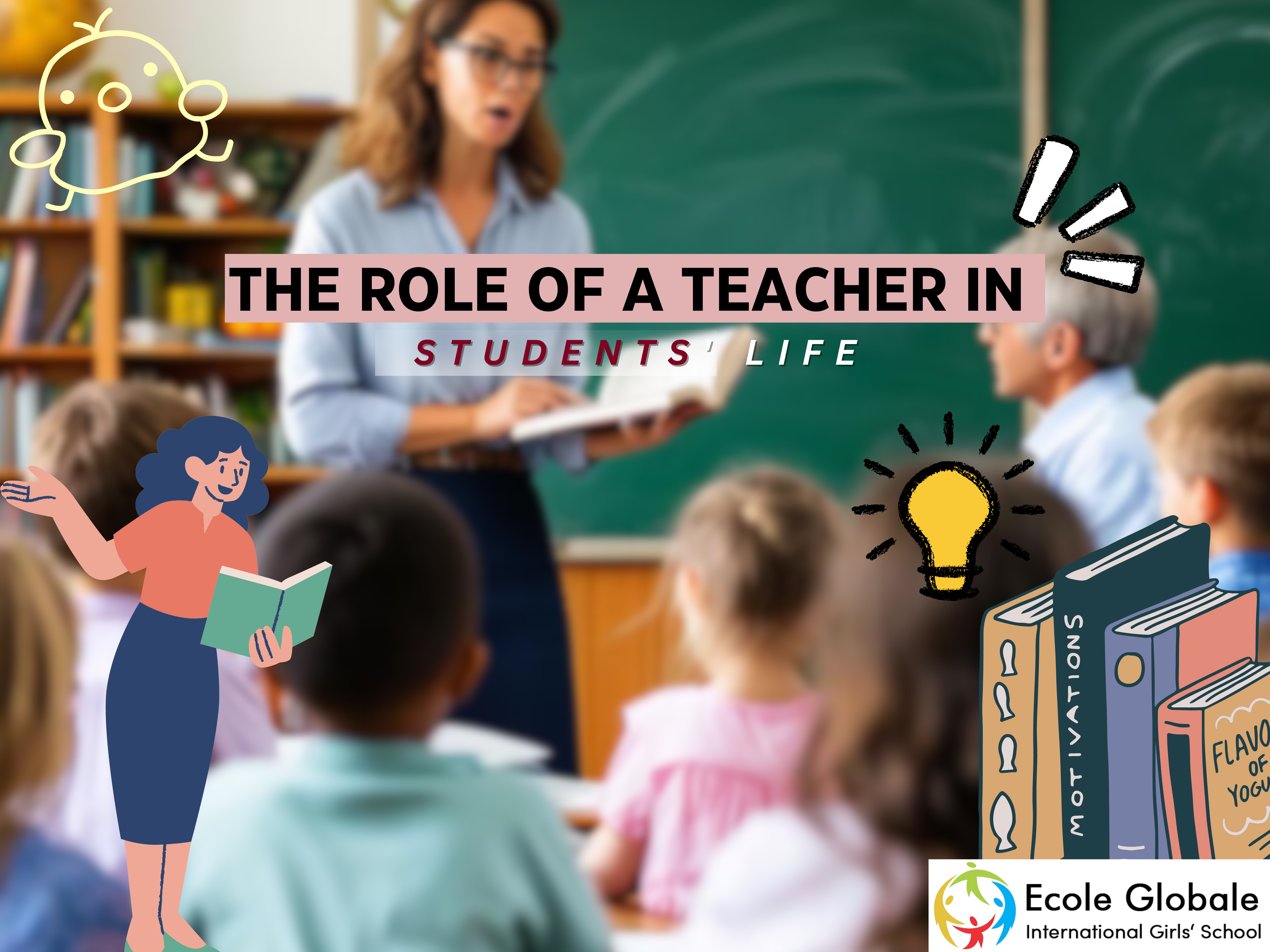The role of a teacher in students life is profound and multi-faceted. Teachers do more than just impart knowledge—they play a key role in shaping students’ futures by nurturing their academic, social, and emotional growth.
Their influence can leave a lasting impact on student success and development, making teachers indispensable figures in education.
Academic Guidance: Laying the Foundation for Success

One of the primary responsibilities of a teacher is to provide students with the knowledge and skills they need to excel academically.
Through their expertise in specific subjects, teachers help students understand complex concepts and engage in critical thinking.
To fulfill their role of a teacher in students life, educators must:
- Deliver subject knowledge effectively, making learning both engaging and accessible.
- Create comprehensive lesson plans that cater to diverse learning styles and abilities.
- Monitor and assess student progress, providing feedback that helps students improve and succeed.
By providing consistent academic guidance, value of teachers empower students to reach their full potential and prepare them for future educational and career opportunities.
Mentorship and Support: Nurturing Emotional Growth

Beyond academic instruction, teachers serve as mentors who offer emotional support and guidance, playing a vital role in students’ personal lives.
A teacher’s ability to foster a positive student-teacher relationship is crucial in creating a learning environment where students feel safe and supported.
In this capacity, teachers are responsible for:
- Offering emotional support: Teachers often provide encouragement during challenging times, helping students navigate both academic and personal struggles.
- Creating an inclusive learning environment: A space where students of all backgrounds feel respected and valued.
- Promoting student autonomy: Encouraging students to take ownership of their learning and make independent decisions.
The importance of teachers in supporting students’ emotional and psychological well-being cannot be overstated.
By being approachable and understanding, teachers can make a significant impact on student motivation and overall academic performance.
Role Modeling: Demonstrating Values and Ethics

Teachers also act as role models for students, shaping their character by demonstrating values such as integrity, responsibility, and compassion.
The teacher’s influence on students extends far beyond academics—they help shape students’ attitudes, behavior, and worldviews.
As role models, teachers should focus on:
- Demonstrating strong values and ethics: By embodying respect, honesty, and responsibility, teachers encourage students to adopt these traits.
- Teaching social skills: Guiding students in developing communication, collaboration, and problem-solving skills essential for success in and out of the classroom.
- Inspiring students to set and achieve goals: Motivating students to aim high and strive for both personal and academic excellence.
In doing so, teachers not only contribute to students’ educational success but also their growth as responsible, ethical members of society.
Personal Development: Cultivating Life Skills and Confidence

Another critical role of a teacher in students life is promoting personal development.
Teachers play an essential part in helping students develop life skills such as critical thinking, creativity, and emotional resilience.
These skills are invaluable as they equip students to face real-world challenges and pursue lifelong learning.
Teachers contribute to personal development by:
- Encouraging critical thinking and creativity: Challenging students to think outside the box and explore different perspectives.
- Building confidence and self-esteem: Providing positive reinforcement that helps students believe in their abilities and achieve their goals.
- Fostering problem-solving skills: Guiding students through difficult situations and teaching them how to approach problems with a constructive mindset.
By helping students grow as individuals, teachers have a lasting influence on their personal development and their ability to succeed both in school and in life.
Conclusion: Teachers as Pillars of Student Success
The role of a teacher in students life is one of profound responsibility and influence.
From providing academic guidance to offering mentorship, from serving as role models to fostering personal development, teachers play an essential role in shaping the future of their students.
Effective teaching is about more than just knowledge transmission; it’s about inspiring, guiding, and empowering students to reach their full potential.
By recognizing the critical importance of teachers and their impact on student success, we can better appreciate the invaluable contributions they make to education and society as a whole.









